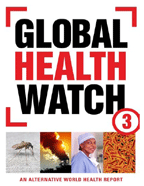Published on Tue, 2011-11-01 08:08
The government of the Argentinean province of Formosa committed before the Inter-American Commission for Human Rights (IACHR) to search on a solution to the demands of Nam Qom indigenous community, that accuses the provincial police force of brutality. The community is represented by represented by Centre for Legal and Social Studies (Centro de Estudios Legales y Sociales, CELS), national focal point of Social Watch. After exhausting judicial remedies in the Argentinean judicial system, members of the Nam Qom Community in the Formosa province appealed to the IACHR seeking reparations for attacks committed by police forces in August 2002. |
Published on Mon, 2011-10-31 07:28
A preliminary report on the elections of the National Constituent Assembly drawn up by the Tunisian League for Human Rights (LTDH, one of the focal points of Social Watch in this arab country) revealed the existence of infringements and shortcomings during the polls and the vote counting, noting, however, that they had not impacted on the electoral process, according to Tunisian News Agency (TAP). |
Published on Fri, 2011-10-28 08:22
In the last three weeks more than a hundred people have died in floods in Central America, and on Tuesday the governments of these countries demanded that the rich North should meet its “moral obligation” and “pay its environmental debts”. At a summit meeting in San Salvador they said, “The industrial development that began in 1850 is the main cause of the climate change we are all suffering from today” and the countries that have benefited from that process have “a duty to contribute to the costs of prevention and reconstruction in our countries”. |
Published on Thu, 2011-10-27 13:20
The successful examples of Sri Lanka, Costa Rica, Rwanda, Thailand, Iran, Brazil and Kerala in India “demonstrate that investment by the state in the social sectors, and particularly in education, health and welfare, has a significant positive impact on the health and social indicators of the whole population”. This is the most relevant conclusion of the third Global Health Watch, conceived as an “alternative world health report” by activists and academics. |
Published on Wed, 2011-10-26 12:18
Bangladeshi civil society organizations demanded participation in the management of the official climate change funds for their representatives and those of the affected communities, to enhance their transparency and accountability. The claim was made at a national consultation in Dhaka, moderated by Equity and Justice Working Group (EquityBD), an alliance of several institutions and renowned citizens. |
SUSCRIBE TO OUR NEWSLETTER







